It took a while, but I can officially say that I’m enjoying The Iliad. Or should I say Iliad? You see, Iliad literally means The Poem of Ilion, which means the The is already there. So, if you call it The Iliad, you’re actually calling it the The The Poem of Ilion. Confusing, right? That’s only the beginning. You may be wondering who Ilion is. Isn’t the Iliad about the Trojan War? Why, yes, it is. Turns out Ilion is where the Trojans live. Oh yeah, and it’s also known as Troy. Wait. Ilion is Troy and Troy is Ilion? Why do we call it Troy and not Ilion today? Maybe Homer’s Triliad just isn’t as good a title for the epic poem than Homer’s Iliad.
Anyway. The story opens with the rage (or wrath or anger, depending on which translation you picked) of Achilles, the godlike Greek whose name has lived on in the canon of epic heroes alongside Batman, George Washington, James Bond, Han Solo, and Odysseus (who’s also in [the] Iliad). Achilles’s rage/wrath/anger begins when Agamemnon, ruler of men/warlord/general (again, depending which translation you picked), King of the Mycenae and commander of the Achaean (Greek) army, orders Achilles to give up his trophy girl Briseis, after Agamemnon was forced to give up his own trophy girl, Chryseis (daughter of Chryses, a priest who prays to Apollo to afflict a plague on the Achaean army). By being forced to give up his trophy (slave), Achilles was gravely insulted (raged up). He left the army and got his goddess mom to ask Zeus to help the Trojans (who he had been fighting against for NINE YEARS) beat Agamemnon and all of his friends. Zeus obliges and the Trojans, led by the superstar warrior (who doesn’t steal his best soldier’s girl) Hector, gain the upper hand. Yet they call him godlike Achilles? Are you kidding me? This guy sucks! After not being in much of the story after the beginning, Achilles returns in Book 9 to basically remind everyone that he really does kind of suck. Listen. Agamemnon is definitely the worst character in the book so far, but Achilles’s ability to hold a grunge is just as bad. He’s so desperate to spite Agamemnon that he’s willing to let his comrades die at the hands of the gods and the Trojans. That’s messed up.
Reading the Stanley Lombardo translation, I took his advice and began reading it like a performance rather than a straight up book. Doing that made the lines flow much easier. It’s amazing how different the book can be presented based on whose translation you decide to read. The hardest part of the reading has been Homer’s (or the many poets Homer was) need to mention everyone’s dad’s names when mentioning them. Agamenon is the son of Atreus, and gods forbid Homer would let you forget that. One of the main reasons I ended up choosing Lombardo’s translation over Peter Green’s is due to the fact that Green opening the book by only mentioning the Agamemnon as Atreus’s son and not by his own name. For the record, Atreus has two sons. I mean, come on. Even when guys are being slaughtered on the battlefield, the poet manages to remind you of every last ounce of someone’s lineage just seconds before they get an arrow through the throat.
The story takes us near the end of the Trojan War. A war started when son of Priam, Paris of Ilion (Troy), took Son of Atreus, Agamemnon’s brother (Menelaus, son of Atreus)’s wife Helen, proclaimed hottest woman on the planet. They’ve been fighting nine years for her, so I’m assuming she must have been pretty special. During this time, the gods are basically just having fun watching the slaughter and intervening when they want to help give their team the upper hand. They stare down from Olympus and allow Achaeans and Trojans to be killed by the trough, flying into the battlefield sometimes to save an important character, but doing nothing when a background solider gets blown to smithereens. Meanwhile, while all this happens, Peleus’s son, the swift footed and godlike Achilles, sits in his tent with rage.
Below are the opening pages to all the translations I was able to get an eye on this past week. Let me know which one you think reads best. See you next week!
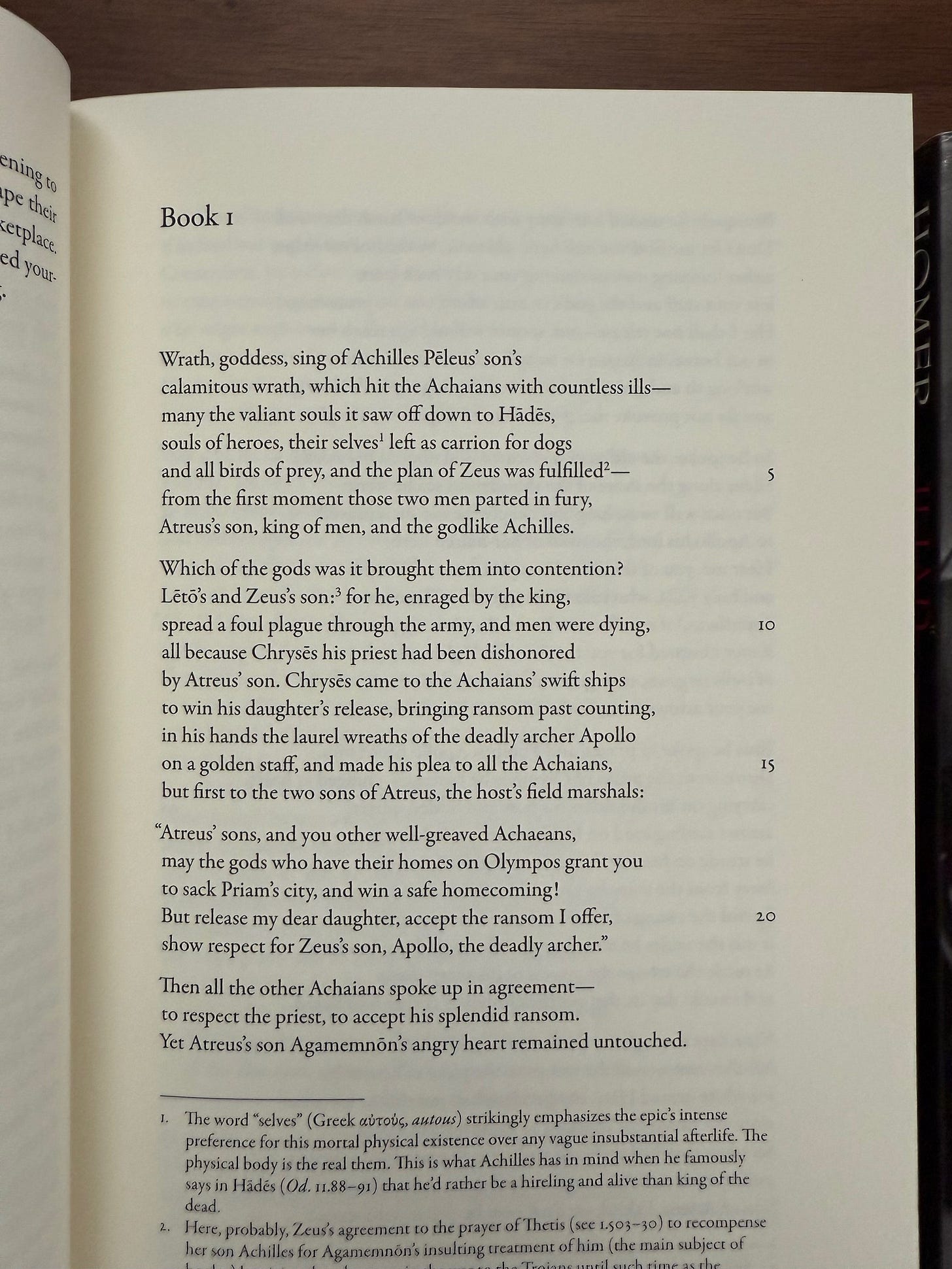
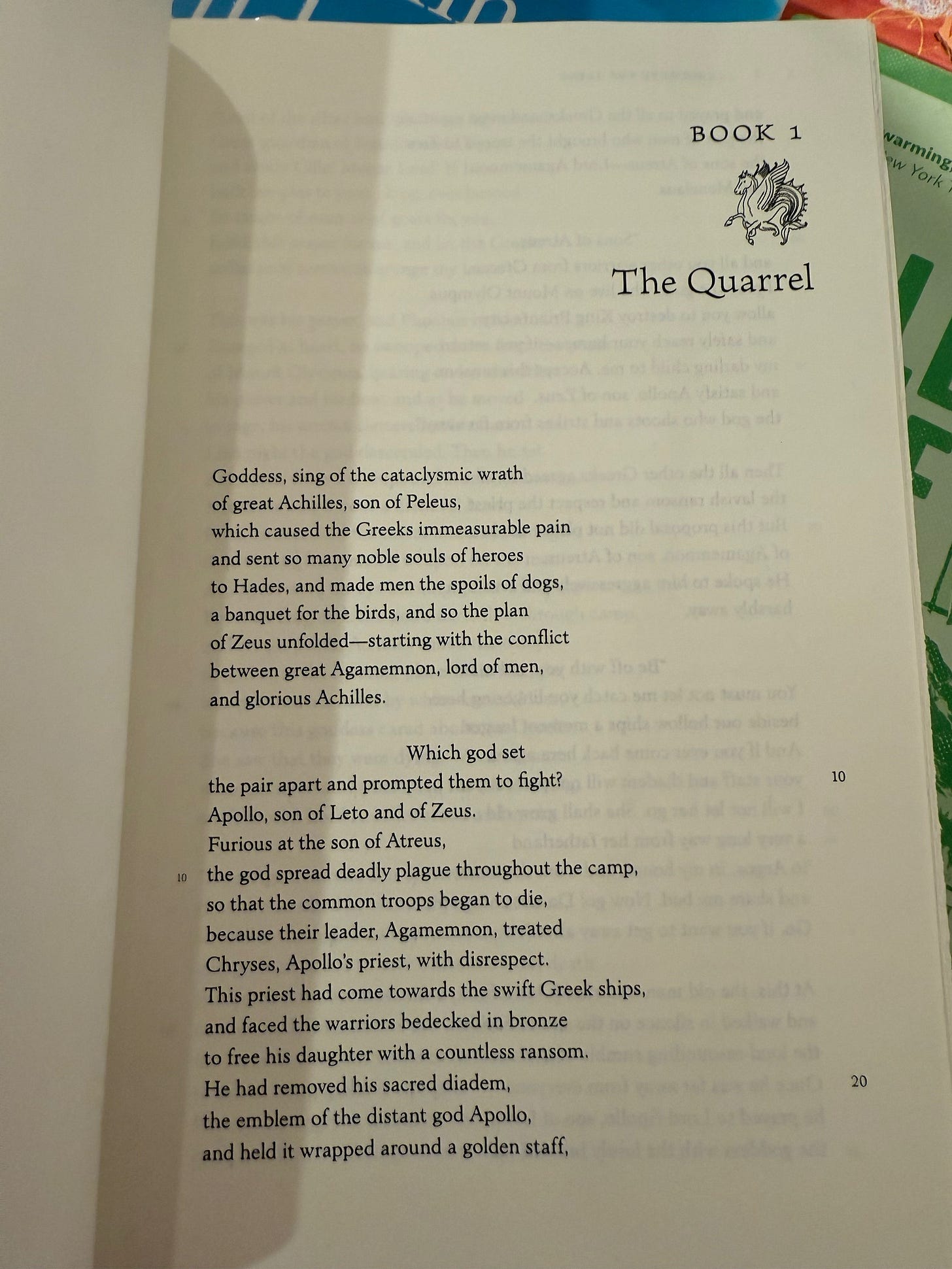
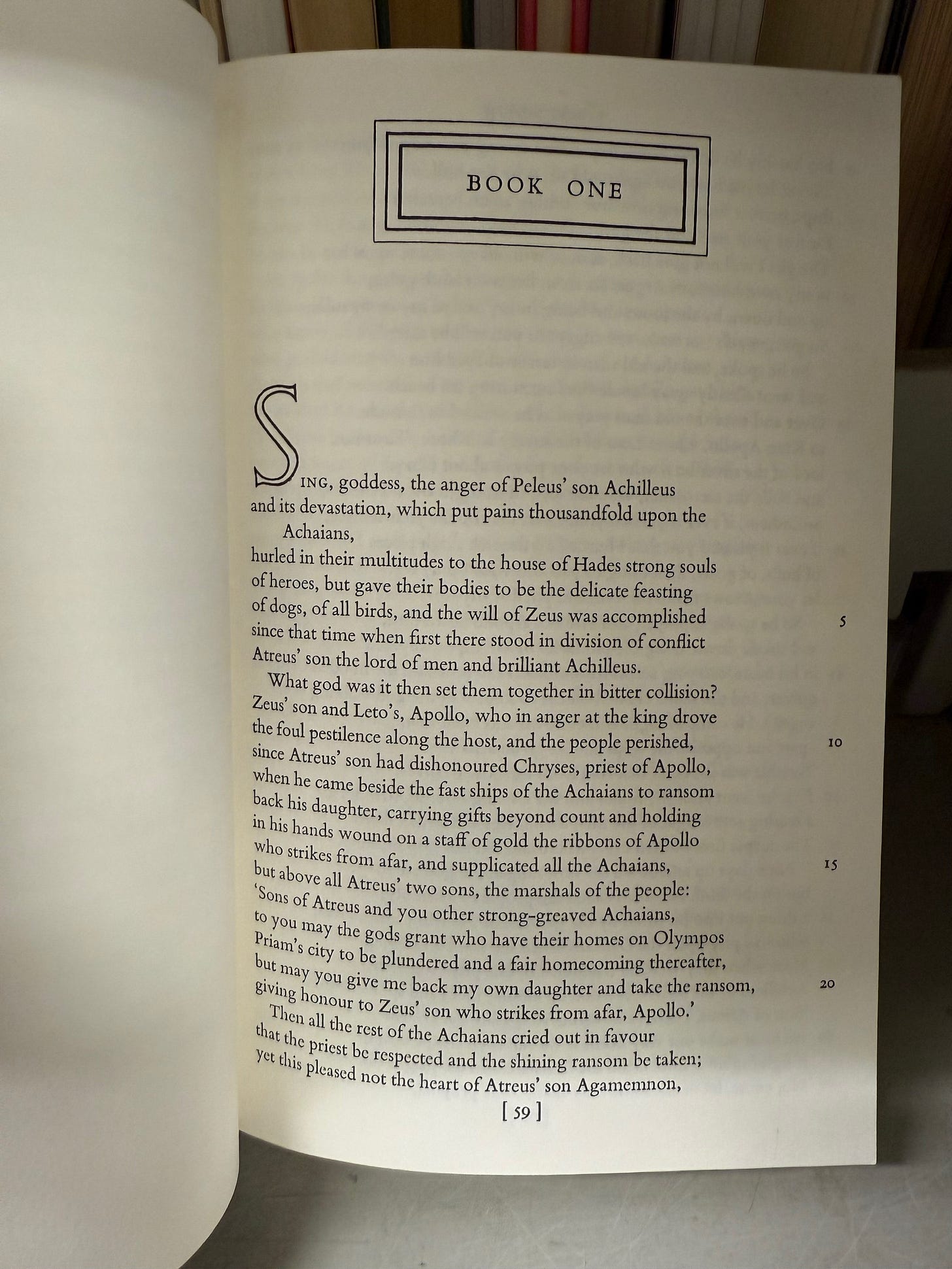
In memory of Peter Green, Robert Fagles, Richmond Lattimore, Robert Fitzgerald, any other Iliad translators we’ve lost, and the many great poets who became known to history as Homer.
Thanks for reading. Feel free to share your own list—I could always use a few more book recommendations.
If you enjoyed this post and would like to support my work, consider becoming a free or paid subscriber.
Feeling generous? You can also buy me a coffee (or another copy of [the] Iliad).






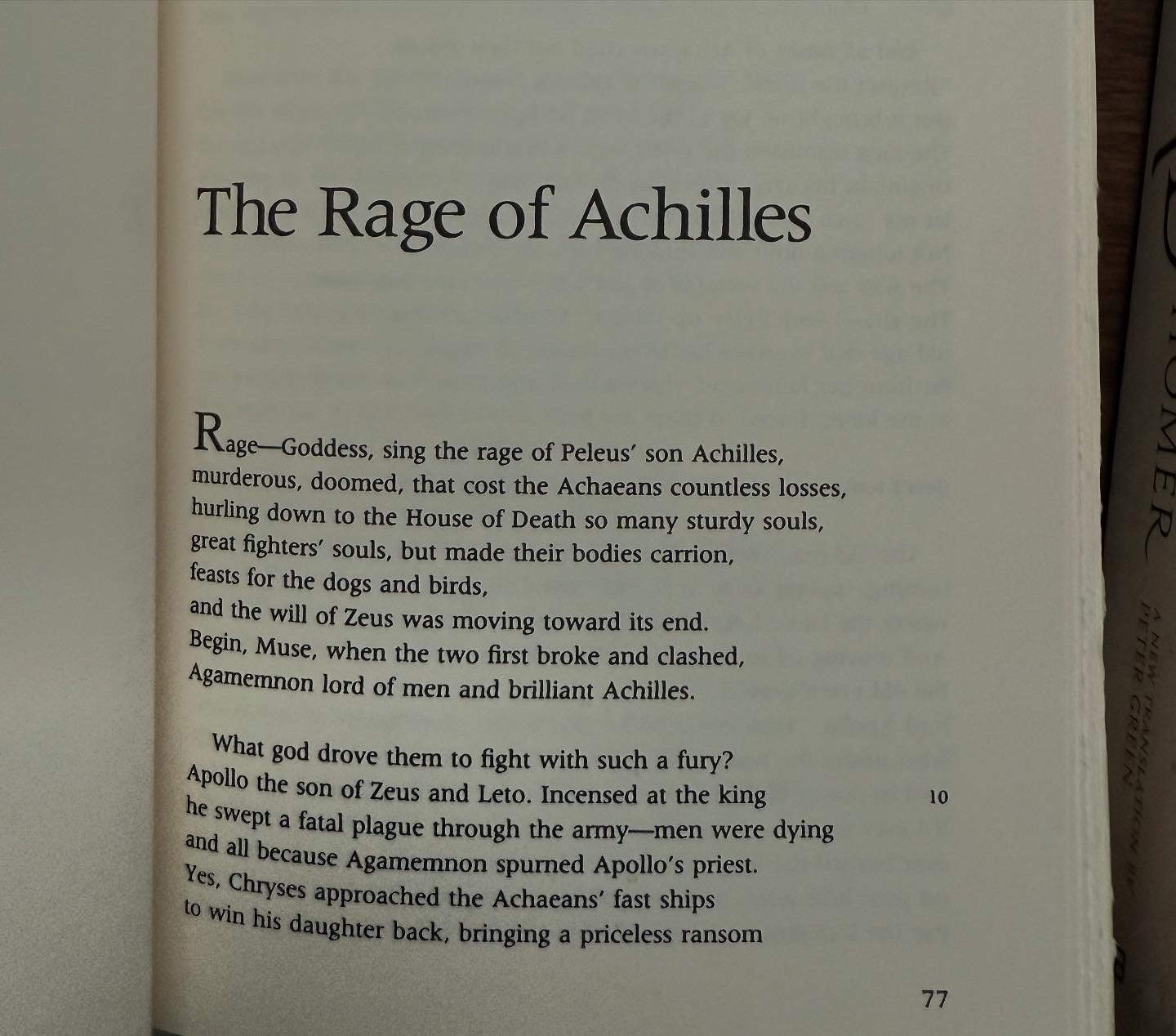
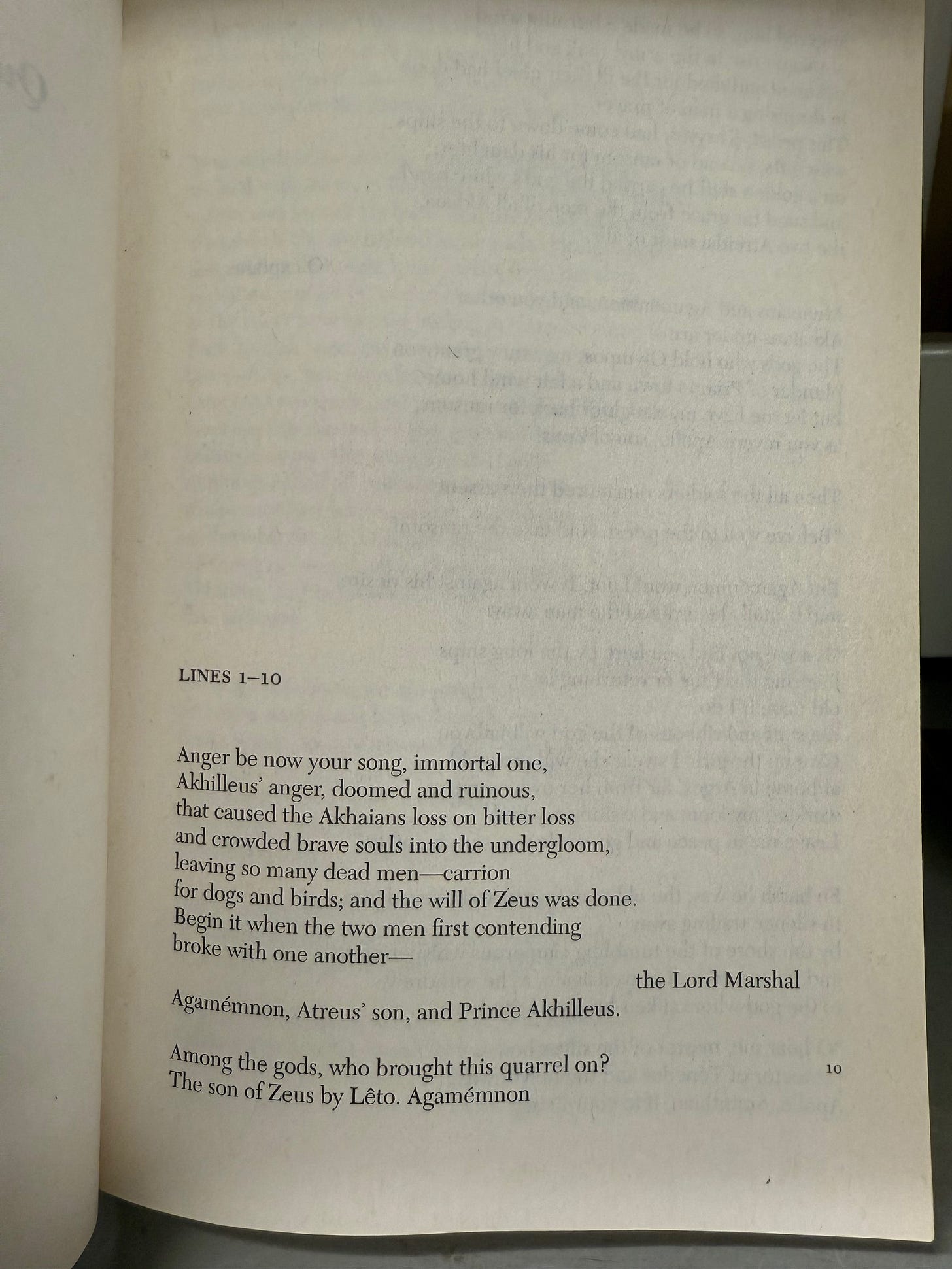
John, I can’t believe you managed to make [The] Iliad funny.
Well done John! Great perspective.